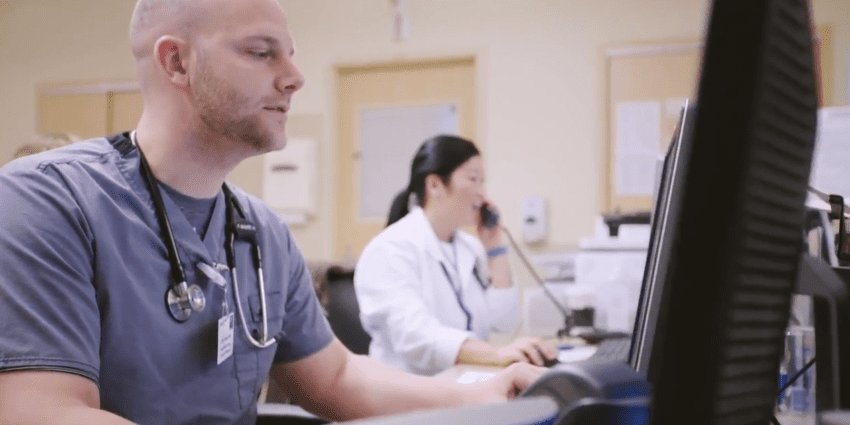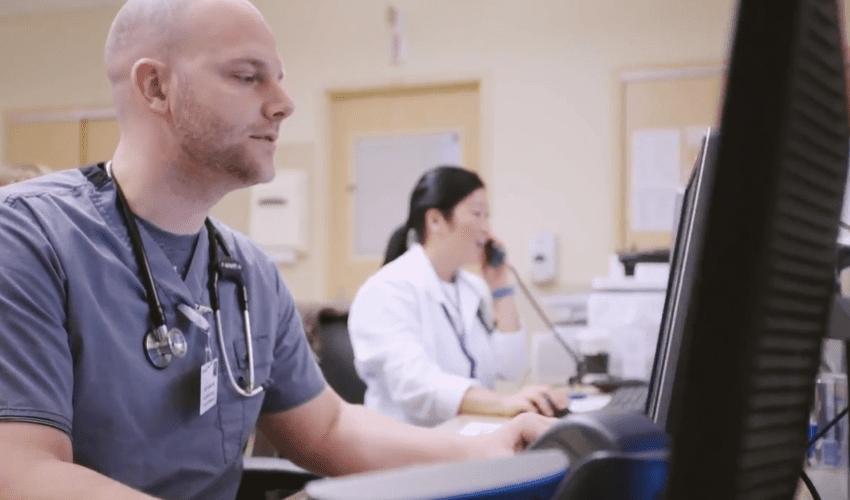How to know if you’re burned out at work — and what to do about it
This piece is presented by Avera.
For professionals, the same drive that leads to success may also contribute to burnout.
But with a little self-awareness and intentionality, there’s a lot you can do to prevent burning out. Taking time to find your best version of work-life balance will lead to exponential benefits – in both your personal and professional life.
“I feel like professionals are one of the most unreached and overlooked people groups,” said Dr. Justin Sharp, a neonatologist with Avera Medical Group and medical director for Avera’s LIGHT Program. “On the outside, it may appear that everything is going well, but on the inside it may be an entirely different picture.”
As the medical director for LIGHT, one of Sharp’s roles is to raise awareness of burnout and the free wellness services that Avera offers to all of its physicians, physician assistants and nurse practitioners and their spouses. LIGHT recently received the Catholic Health Association’s Achievement Citation award for offering an innovative program that changes lives and serves as a model for other organizations.
Sharp said the work he does on behalf of medical providers easily translates to professionals of all kinds.
“There’s a mind-set within professional culture to give, serve and do your best on behalf of others. That’s a high calling, but if you’re not careful it can come at the expense of your own health.”
Symptoms of burnout
Sharp said one of the greatest challenges among professionals is not only recognizing but also acknowledging the early signs of burnout.
“As professionals, it’s culturally ingrained into us to overcome difficulty. So when the internal check engine light starts to flash with symptoms of burnout, oftentimes we just put our nose to the grindstone and think we can push through it. All too often, that does more harm than good.”
These symptoms might include:
- Decreased compassion for others, including everyone from patients and clients to friends and family.
- Decreased sense of fulfillment in your profession.
- Emotional exhaustion.
“It’s important to give language to symptoms so people can become aware of what they’re struggling with,” Sharp said. “There’s a stigma around asking for help – that asking for help means that you’re weak and can’t handle the pressures of professional and personal life. In reality, it only means that you’re human.”
Early intervention is critical.
“When you don’t seek the help you need, it can lead to an increased risk of developing other coping mechanisms or addictions that lead to deeper levels of hopelessness, anxiety and depression,” he said.
Three tips to beat burnout
How do you avoid burning out? It all comes down to finding your own unique balance of work and life, which can seem overwhelming on its own. That’s why Sharp encourages professionals to take three simple steps:
- Train your mind to focus on the positive.
“Writing down and reflecting on three positive things that happen each day has proven to have a significant effect on reducing anxiety,” Sharp said. “It’s a simple way to get back to finding fulfillment in what you do.”
- Meet with an executive coach.
“As professionals, we’re as vulnerable to needing help as anyone else is. An executive coach offers a confidential, unbiased and outside perspective. They can help you work through and improve on everything from leadership skills to work efficiency and relationships to work-life balance.”
- Pursue life-giving things.
“It’s so important to make time to pursue the activities and relationships that are life-giving to you. When you’re filled up, you can be the best version of yourself for others. That may require saying ‘no’ to something good, so that you can say ‘yes’ to something even better.”
To learn more about LIGHT and find free resources such as self-assessments, visit Avera.org/LIGHT.








